I have written about mass shooting too many times:
Say His Name!
Las Vegas Strong. Find the helpers. On Tuesday Morning I Found Kathryn Erskine
Once Again.Shocked and Sad. That is my emotional state today 10.2.2017
Columbine, Sandy Hook, Aurora Colorado, Orlando, Las Vegas, and now Parkland.
Both Gretchen and Shelly helped with my Parkland post in February, and a couple weeks later the idea for a book was born and well underway. Shelly, Gretchen, and I are thrilled this book is in the world. The book has YA literature components, but it does not focus solely on YA literature. Instead, it explores how to talk about the issue in a variety of ways within schools. We looked for English Education experts who could talk about writing, social media, teacher education, and advocacy, prioritizing discussions about using literature to discuss gun violence before a critical event as well as in the aftermath of a shooting.
The three of us are English educators who primarily research the literary critique, analysis, and pedagogy of Young Adult literature. We knew that we had a host of colleagues with expertise in areas beyond our own. And now, many of them have chapters in this book. We are humbled by how quickly our collaborators produced chapters focusing on a YA novel, analyzing social media, considering gun rhetoric and developing student voices about critical issues that involve them and affect their lives.
This book is divided into five sections, which are clearly identified below. You will also find a brief bio of each author and chapter abstract. It is our intention that this post can be used to share with administrators, librarians, or donors who might want buy the book for their schools, their libraries, and/or for a group of teachers looking to fund a book study group.
Many of the book's contributors are willing to help facilitate a book group either in person or virtually. At the bottom of the post you will find a coupon for a discount. Please share widely and directly ask your school or university curriculum library to buy the book. Let's keep working to figure out how to have these difficult discussions in classrooms across the country.
| Shelly Shaffer is an Assistant Professor of Literacy. Shelly received her BA in English from University of Arizona in 1998, her MA in Curriculum and Instruction from University of Phoenix in 2002, and her PhD in English Education from Arizona State University in 2015. She taught for 13.5 years in Mesa Public Schools in Mesa, AZ. She will be teaching courses in Education and Literacy in the Department of Education. Her research interests are focused on secondary literacy instruction, literacy motivation, innovative curriculum, and culturally and ethnically diverse learners in ELA (English Language Arts) classrooms. | Gretchen Rumohr-Voskuil is an associate professor of English, department chair, and writing program administrator at Aquinas College. Her focus on at-risk writers continued throughout her doctoral studies at Western Michigan University. In addition, she has published articles in Voices from the Middle, Middle Grades Review, and Language Arts Journal of Michigan, written chapters for several edited collections such as Adolescent Literature as a Complement to the Content Areas: Social Science and Humanities, and a regular contributor to the YA Wednesday Blog. | Steven T. Bickmore is an associate professor of in English Education in the Department of Teaching and Learning within the College of Education at the University of Nevada, Las Vegas (UNLV). He was co-editor of The ALAN Review, the premier journal on the study and research of Young Adult literature, from 2009 to 2014. He is a co-founder and co-editor of Study and Scrutiny. He has many teacher awards including an NEH/Reader’s Digest Teacher Scholar Award (a full year paid research sabbatical) for the 1989-1990 school year and a winner of the prestigious Milken Educator Award in 1999 |
Preface |
SECTION I:
Gun Violence in Schools: What Does History Tell Us?
Ch. 1
It’s the Gun
Chris Crutcher
| Crutcher’s years as teacher, then director, of a K-12 alternative school in Oakland, California through the nineteen-seventies, and his subsequent twenty-odd years as a therapist specializing in child abuse and neglect, inform his thirteen novels and two collections of short stories. “I have forever been intrigued by the extremes of the human condition,” he says, “the remarkable juxtaposition of the ghastly and the glorious. As Eric ‘Moby’ Calhoun tells us at the conclusion of Staying Fat for Sarah Byrnes, ‘Ain’t it a trip where heroes come from’.” He has also written what he calls an ill-advised autobiography titled King of the Mild Frontier, which was designated by “Publisher’s Weekly” as “the YA book most adults would have read if they knew it existed.” |
Ch. 2
History of Violence: Guns, U.S. Education, and American Exceptionalism
P. L. Thomas
| P. L. Thomas, Professor of Education (Furman University), taught high school English for 18 years in South Carolina before moving to teacher education and teaching first-year writing. He has been a column editor/co-editor for English Journal (National Council of Teachers of English) under two editorships and is author of Beware the Roadbuilders (Garn Press) and Teaching Writing as Journey, Not Destination: Essays Exploring What “Teaching Writing” Means (IAP). Follow his work at @plthomasEdD and http://radicalscholarship.wordpress.com/ Abstract: High-profile school shootings from Columbine in Colorado to Newtown in Connecticut and Parkland in Florida have been met with public shock and political “thoughts and prayers.” This chapter explores the history of school shootings, and the important research base on how to respond against public and political numbness and flawed responses in the U.S. |
Ch. 3
Unreal: How the Rest of the World Views U.S. Gun Policy
David Belbin
| David Belbin is a novelist, a senior lecturer in Creative Writing at Nottingham Trent University and the Chair of Nottingham UNESCO City of Literature. Abstract: David Belbin's chapter, 'Unreal' considers how the rest of the world views U.S. policy on gun violence from the perspective of a YA author living in a UK city that briefly had a reputation for gun violence. |
Ch. 4
#NeverAgain: Considering the Marjory Stoneman Douglas High School Student Activists’ Media Representations through a Youth Lens
Christian Z. Goering
| Christian Z. Goering is professor of English education at the University of Arkansas and currently serves as Director of the Northwest Arkansas Writing Project and Chair of the English Language Arts Teacher Educators. Goering has co-authored one book, co-edited three books, authored or co-authored over 65 articles and book chapters, served as PI or Co-PI for over $1,000,000 in grants and contracts, and has given numerous refereed and invited presentations at regional, national, and international conferences. In 2018, his co-edited book, Critical Media Literacy and Fake News in Post Truth America, was selected as a recipient of the 2019 Divergent Award for Excellence in 21st Century Literacies Research, http://www.initiativefor21research.org/the-divergent-award.html. |
Section II:
Reading About School Violence: Books that Explore School Shootings and Their Aftermath
Ch. 5
What We Know and What We Can Do: Using Mercy Rule to Help Students Understand the Causes and Warning Signs of School Violence
James Blasingame
| James Blasingame focuses on young adult literature, Indigenous education, secondary writing instruction, preparing pre-service teachers, and cowboy poetry. He is the executive director of the Assembly on Literature for Adolescents of the National Council of Teachers of English (ALAN) and has also been ALAN president and The ALAN Review co-editor. For 14 years he was editor of the “Books for Adolescents and Adults” pages of the Journal of Adult and Adolescent Literacy. He is the author or coauthor of John Green: Teen Whisperer, Stephenie Meyer: Into Twilight, Using Mentor Texts: Middle School, Books That Don’t Bore ‘Em: Young Adult Literature for Today’s Generation, and several others. |
Ch. 6
Looking for Hope—and Helpers—in Forgive Me, Leonard Peacock
Gretchen Rumohr-Voskuil
| Gretchen Rumohr-Voskuil ([email protected]) is an associate professor of English and department chair at Aquinas College, where she teaches writing and language arts methods. She lives, happily reads, and walks her five-pound Yorkshire Terrier in west Michigan, despite its epic lake effect snowfall. Abstract: This chapter proposes before, during, and after reading activities that can help students discuss, empathize with, and learn from the perspective of a potential shooter and suicide victim. |
Ch. 7
Adolescent Counter-Storytelling: Finding Youth Voice and Truth in That’s Not What Happened
Shelly Shaffer
| Dr. Shelly Shaffer is Assistant Professor of Literacy in the Department of Education at Eastern Washington University in Cheney, WA. Dr. Shaffer earned her PhD in English Education from Arizona State University in 2015. Dr. Shaffer taught middle school and high school English for 13 years in Arizona, and she now uses her experience to teach courses in content area literacy and writing, secondary methods, Young adult literature, children’s literature, and various graduate courses. She has published in The Journal of Adolescent and Adult Literacy, English Journal, and Journal of Multicultural Education. She has also written several book chapters and co-edited the recent book Contending with Gun Violence in the English Language Classroom. Her current research interests are Young Adult literature, reading motivation, flipped classrooms, mentoring, and multimedia integration in teacher education programs. |
Ch. 8
Exploring the Blame Game Through the Lens of the Scout: Reading and Writing About Give a Boy a Gun
Melissa Williamson-Pulkkinen
| Melissa Williamson-Pulkkinen is a writing professor at Great Bay Community College in Portsmouth, NH and the University of Massachusetts, Lowell. She has published articles in English Journal and Signal Journal. Prior to earning her PhD in Curriculum and Instruction at Arizona State University, she taught high school English in Northern Virginia. |
Section III:
Recovering from Trauma, Finding Allies, and Taking Action Towards Social Justice
Ch. 9
Welcoming Ghosts into Our Classroom: Long Way Down
Sarah J. Donovan
| Sarah J. Donovan, PhD, is a junior English language arts teacher and adjunct professor in middle and secondary education. She wrote Genocide Literature in Middle and Secondary Classrooms (2016) and the young adult novel Alone Together (2018). Dr. Donovan’s writes the the Books in Review (2019) column for The ALAN Review and serves as a state representative and board member for The Assembly on Literature for Adolescents of NCTE (ALAN). She presents at local, national, and international conferences about readers’ and writers’ workshop and has hosts a weekly blog, Ethical ELA. She has contributed chapters to The Best Lesson Series (Talks with Teachers, 2018), Queer Adolescent Literature as a Complement to the English Language Arts Curriculum (Rowman & Littlefield, 2018), and Moving Beyond Loss to Societal Grieving (Rowman & Littlefield, 2018). |
Ch. 10
This is Not a Drill: Exploring the After-Effects of Traumatic Events with Are You Still There by Sarah Lynn Scheerger
Maria Hernadez Goff
| Maria Hernandez Goff is an Assistant Professor of Literacy Education at California State University, Fresno. Her previous experience as a secondary English language arts teacher shapes her research interests centering on adolescent literacies, multiliteracies, and teacher learning and development. Abstract: This is not a drill: Exploring the after-effects of traumatic events with Are you still there by Sarah Lynn Scheerger provides before, during, and after reading activities to prompt teachers and students to explore the post-bomb threat experiences of the novel's characters and creates inquiries into how schools and communities respond to similar events. |
Ch. 11
What He Knows and What He Will Say: Voicing for Justice in All American Boys
Alice Hays
| Alice Hays is an Assistant Professor of Education at California State University, Bakersfield. After 19 years of teaching high school English and coaching and judging winter guard, she recognizes the amazing power of secondary students to be agents of change. She earned her PhD in English education from Arizona State University in 2017. Her current research interests are Young Adult Literature, Youth Participatory Action Research, rural educational systems and residency programs. This has led her to study the ways that young adult literature can tap into that capacity and her research explores the ways YA impacts students’ and teachers’ pro-social behavior. Some publications can be found in the ALAN review, Study and Scrutiny the Southern Oregon English Journal, and the Journal of American Indian Education. |
This chapter will examine the dual narrative of All American Boys by John Reynolds and Brendan Kiely. The novel itself examines the brutal reality of contemporary racism from the very people meant to protect us, and more importantly examines the paralysis one of the two narrators initially feels as a bystander. The chapter includes a before-reading bystander activity, a during-reading perspective taking activity, and an after-reading template to take action against school violence as a way of helping to heal from trauma.
Ch. 12
Making Good Trouble: John Lewis, Andrew Aydin, and Nate Powell’s March Trilogy and the Lessons of the Civil Rights Movement
Meghan Sweeny
| Meghan Sweeney is an associate professor of English at UNC Wilmington, where she teaches courses in children’s and adolescent literature and popular culture. She has published articles in Children's Literature, Children's Literature in Education, The Lion and the Unicorn, Children’s Literature Association Quarterly, and The ALAN Review, among others, and in the collection Letting Go: Feminist and Social Justice Insight and Activism. She is the co-editor of a collection of essays on the cultural, economic, and aesthetic significance of campus spaces entitled Remaking the American College Campus. |
Section IV:
Writing Beyond Fear by Addressing the Issues
Ch. 13
On Rhetorical Analysis, Teaching, and the American Culture of Guns
Jonathan Bush
| Jonathan Bush teaches English education, writing, and rhetoric at Western Michigan University, where he also directs the Third Coast Writing Project. He is also a public affairs officer in the Navy Reserve and an Afghanistan veteran. Abstract: This chapter provides a method and a discussion of how to use rhetorical analysis as a means of better understanding the rhetoric used around discussions of gun culture. By teaching these sorts of methods, we can empower our students and ourselves to engage critically with messaging and rhetoric designed to influence the conversation around guns and gun control. |
Ch. 14
Writing through Pain: How Teachers can Support Writing as Therapy for Students Processing Trauma
Jason J. Griffith
| Jason Griffith is an Assistant Professor of Education at Penn State University. A National Board Certified Teacher and Fellow of the National Writing Project, Jason taught middle and high school English for 12 years before earning a PhD in English Education from Arizona State University. Abstract: What happens when students self-select personal writing as a way to work through violent trauma they've experienced? This chapter features strategies and suggestions for teachers from a student who wrote personally in response to violent trauma. |
Ch. 15
Writing in the Margins: Students’ Voices in the Aftermath of Trauma
Jim Fredricksen and Joe Dillon
| James E Fredricksen is an associate professor of English Education at Boise State University and a co-director of the Boise State Writing Project. Abstract: This chapter inquires into the ways two young people involved in the March for Our Lives Movement, Edna Chavez and Kai Koerber, create texts (a speech, tweets) to move their audiences to take action. |
Section V:
Arming Teachers with Words, Stories, and Power
Ch. 16
When the Gun isn’t Metaphorical: Educating Teachers in the Age of School Shootings
Melanie Shoffner
| Melanie Shoffner is Associate Professor of English Education at James Madison University. Her recent work includes the edited book Exploring Teachers in Fiction and Film, articles in The Journal of Language and Literacy Education and Ubiquity: The Journal of Literature, Literacy, and the Arts. Her research and writing focus on the dispositional, relational and reflective development of preservice English teachers. A former high school English teacher, Dr. Shoffner recently spent a year in Romania as a Fulbright Scholar and currently directs the JMU College of Education’s Semester in Salamanca program. |
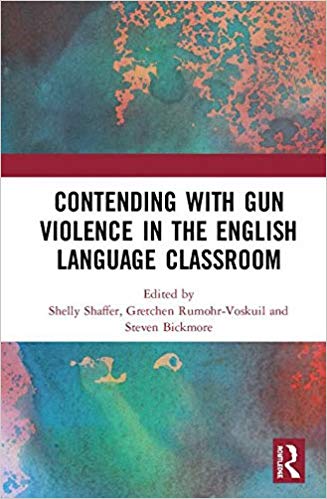
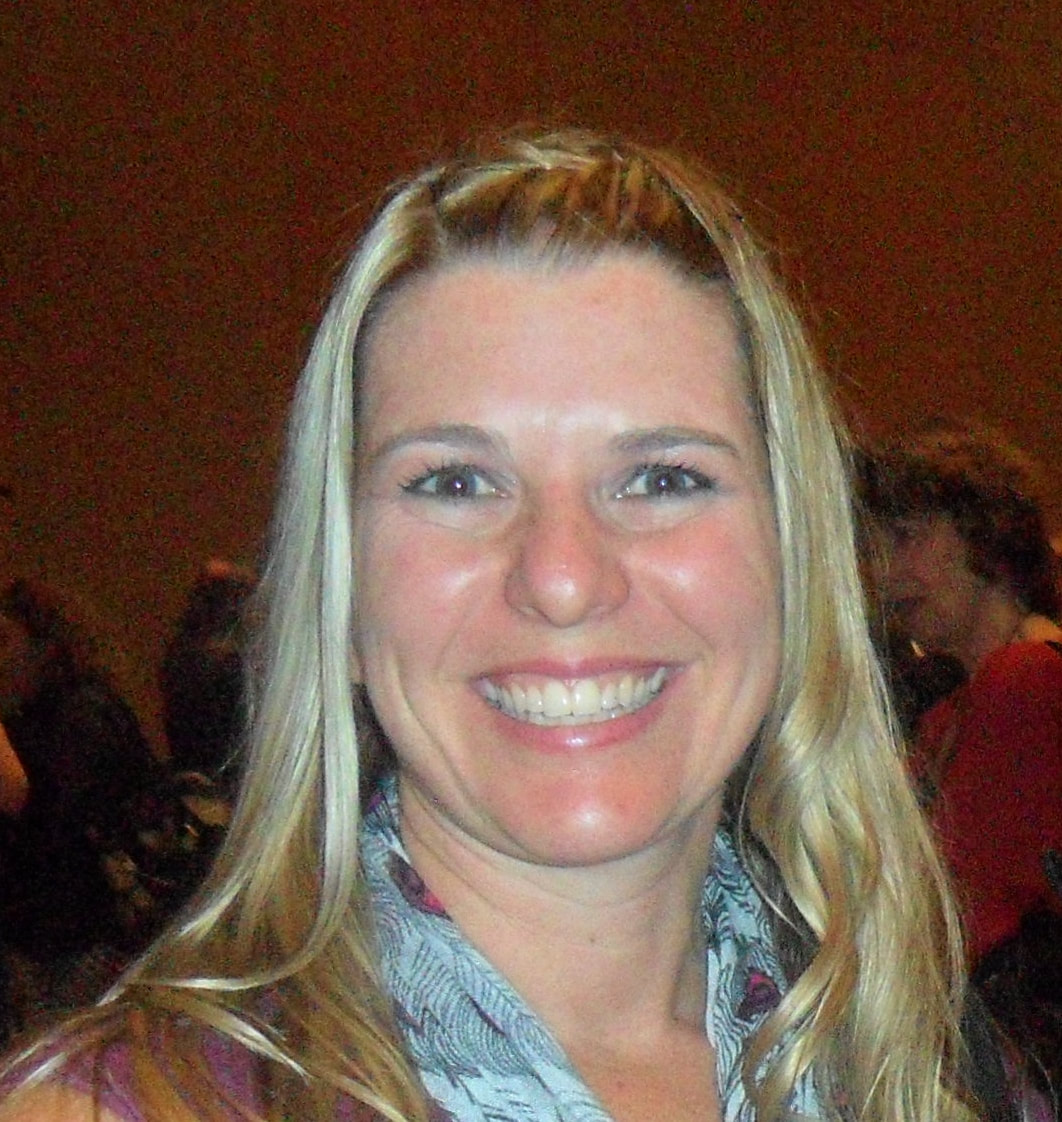
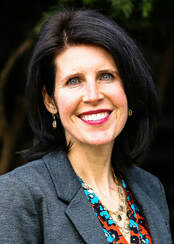
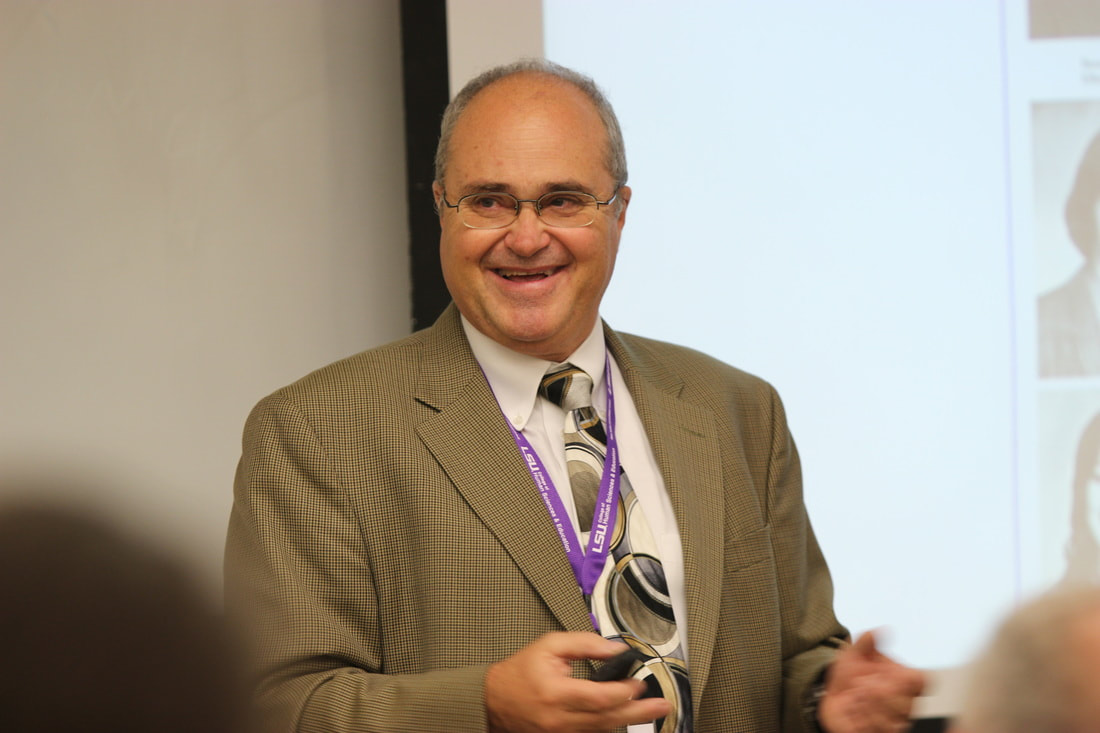
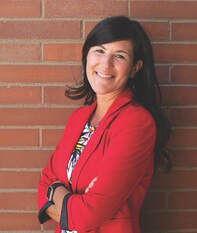

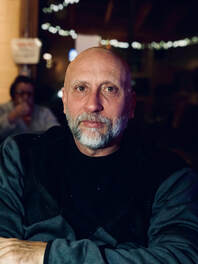
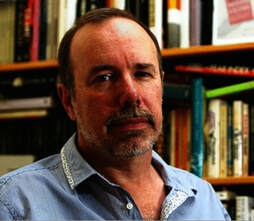


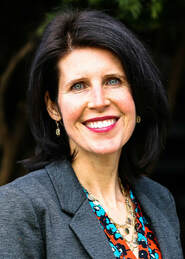
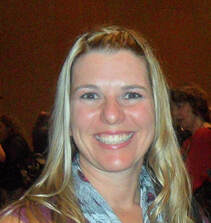


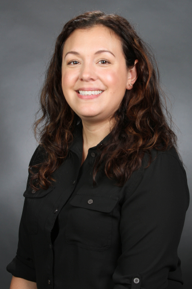
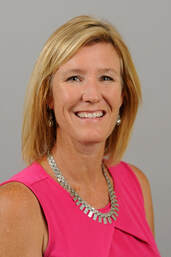
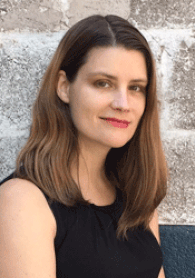


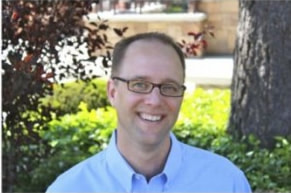
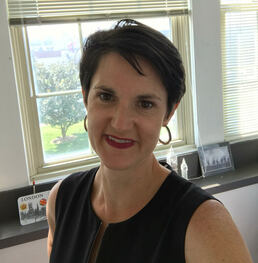

 RSS Feed
RSS Feed